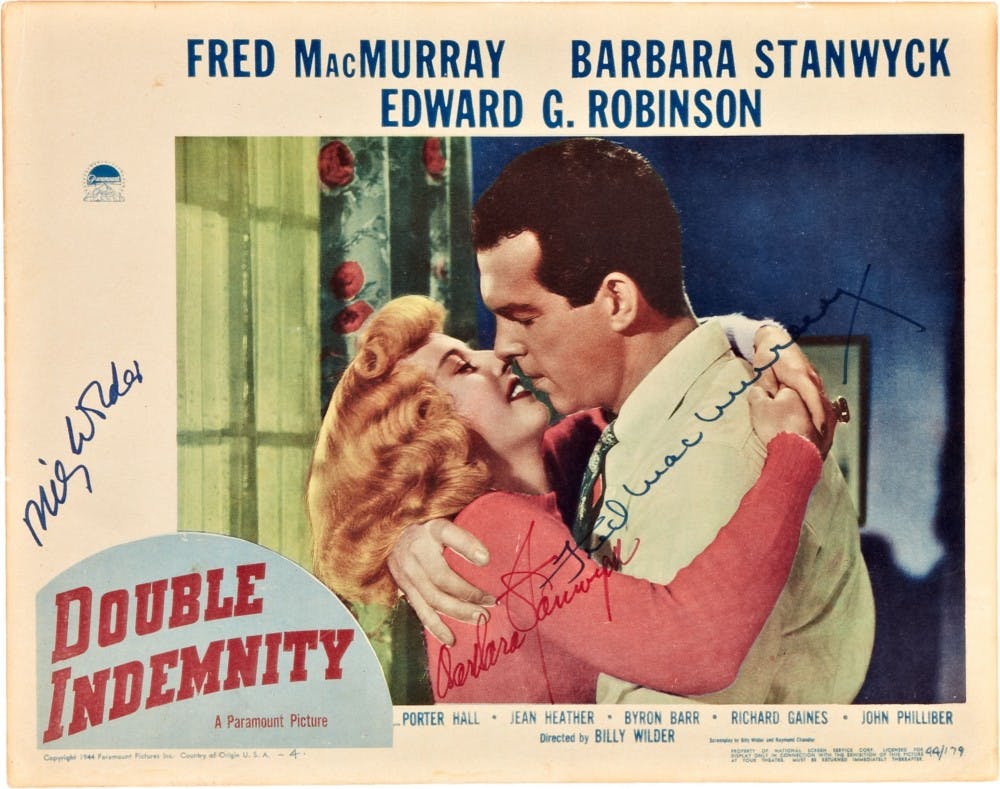“Double Indemnity” is one of the most memorable thrillers of the 1940s. It furthered some of the film noir elements of “The Maltese Falcon” while establishing some of its own. It is the type of film where every aspect of the production is excellent.
This movie is about an insurance salesman named Walter Neff. He is immediately attracted to Phyllis Dietrichson, the wife of a client.
Dietrichson slowly but surely draws Neff into a plot to kill her husband, which does not end smoothly.
“Double Indemnity” is somewhat similar to “The Maltese Falcon.” Both films feature a crime and its investigation. But this film features a more morally ambiguous protagonist. Neff commits crimes, while Sam Spade merely investigates them. “Double Indemnity” established that the “heroes” of noir films did not have to be so heroic.
Another influential contribution that “Double Indemnity” made to the genre of film noir is its visual ideas. The most menacing crimes take place at night, which makes them seem even more evil. Many film noirs that would come after it would also make memorable use of night sequences. Some smaller visuals are just as clever. One example is how Dietrichson’s shadow falls across Neff’s body in one scene, implying her future control over him.
The dialogue in this film is just as memorable as its visuals. Director Billy Wilder co-wrote this film with Raymond Chandler, an experienced crime novelist. They had a very rough collaboration while they were writing this film. Despite their arguments, they ultimately produced a screenplay that bears trademarks of both of their writing.
Chandler’s hard-boiled dialogue is still snappy, even if it is a tad ridiculous. If you’ve seen Wilder’s other films you’ll notice some of his wit. His sense of humor is most apparent in my favorite line, “You’re not smarter, Walter. You’re just a little taller.”
The performances in this film are excellent. Fred MacMurray is great at conveying Neff’s dark side. Barbara Stanwyck is perfect as the manipulative Dietrichson. She sets the standard for the noir archetype called “the femme fatale,” which is an untrustworthy woman who leads the hero into a darker state of mind.
“Double Indemnity” remains entertaining and clever. The morally complex performances and visual darkness would provide inspiration to filmmakers for decades. There are few better introductions to the pleasures of 1940s Film Noir than this movie.




